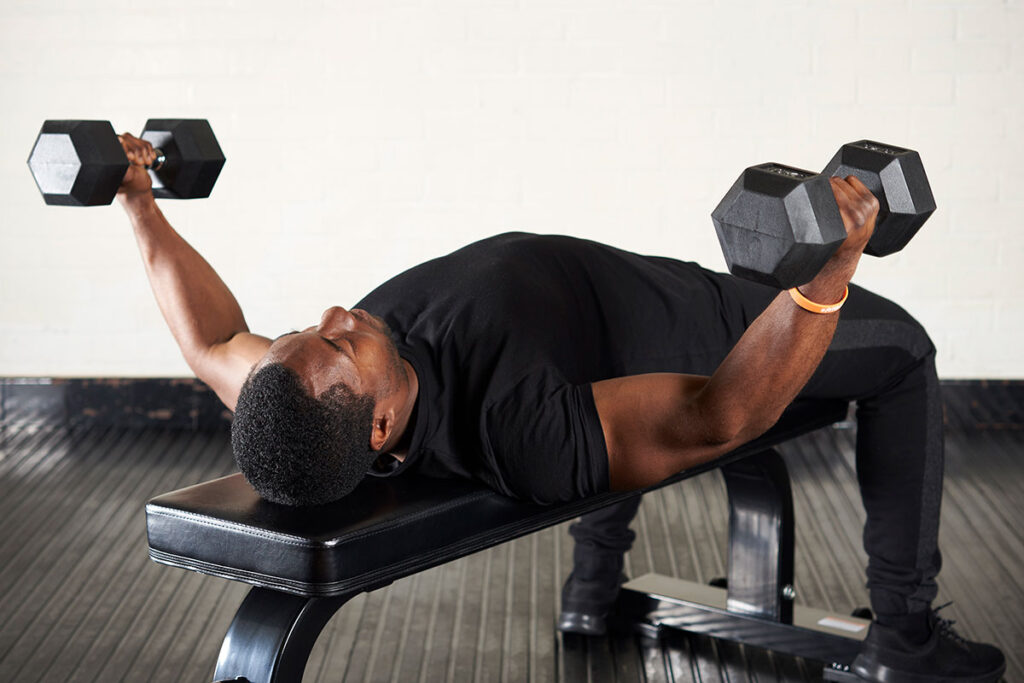In the realm of weightlifting, two heavyweights stand face-to-face, ready to clash in the ultimate showdown: dumbbells vs. barbells. These age-old rivals have sparked endless debates among fitness enthusiasts, each claiming superiority in sculpting the perfect physique. But which side will emerge victorious in the battle of the weights? Join us as we delve into the differences, benefits, and drawbacks of dumbbells and barbells to uncover the ultimate champion in the world of strength training.

The Basics: Understanding the Key Differences Between Dumbbells and Barbells
When it comes to weightlifting, the debate between using dumbbells and barbells has been ongoing for years. Both types of weights have their own unique advantages and disadvantages, making it important for individuals to understand the key differences before choosing which one to incorporate into their workout routine.
Advantages of Dumbbells:
- Allow for a greater range of motion, providing a more versatile workout
- Engage stabilizing muscles, leading to improved overall strength and balance
- Easy to use for unilateral exercises, helping to correct muscle imbalances
Advantages of Barbells:
- Allow for heavier lifting, making them ideal for strength training and muscle building
- Provide better stability for compound exercises like squats and deadlifts
- Can be easier to progress in weight increments compared to dumbbells
Pros and Cons: Analyzing the Benefits and Drawbacks of Using Dumbbells vs. Barbells
When it comes to weightlifting, the age-old debate of dumbbells versus barbells continues to divide gym enthusiasts. Both options have their own set of advantages and disadvantages, making it essential to weigh the pros and cons before deciding which one suits your fitness goals best.
Benefits of Dumbbells:
- Versatility: Dumbbells allow for a greater range of motion and flexibility in exercises, making them ideal for targeting specific muscle groups.
- Balance and Stability: Using dumbbells can help improve balance and stability as each arm works independently, addressing any strength imbalances.
- Joint-Friendly: Dumbbells can reduce the strain on joints, making them a safer choice for individuals with joint issues or injuries.
Drawbacks of Dumbbells:
- Weight Limit: Dumbbells may have weight limitations, restricting progressive overload for advanced lifters.
- Complex Movements: Some compound exercises may be challenging to perform with dumbbells, limiting exercise options for full-body workouts.
Choosing the Right Tool for the Job: Recommendations for Incorporating Dumbbells and Barbells into Your Workout Routine
When it comes to incorporating weights into your workout routine, the debate between dumbbells and barbells is a constant one. Both have their own set of advantages and disadvantages, making it important to choose the right tool for the job based on your fitness goals and preferences.
Dumbbells
- Allow for a greater range of motion and flexibility in exercises
- Are great for targeting specific muscle groups and improving balance
- Can be used for unilateral exercises to correct muscle imbalances
Barbells
- Enable you to lift heavier weights and increase overall strength
- Are ideal for compound movements that engage multiple muscle groups
- Require less stabilization, making them easier to control during exercises
In the end, whether you choose dumbbells or barbells, the most important thing is to find a workout routine that works best for you. Both types of weights have their own unique benefits and can help you achieve your fitness goals. So go ahead, pick up those weights and start lifting your way to a stronger, healthier you! Which side will you choose in the battle of the weights? The choice is yours.